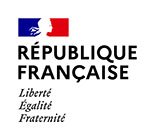You are here
The international challenges and priorities of Inrap
Inrap is a major international reference in preventive archaeology
With no real equivalent elsewhere in the world, since its creation, Inrap has been a major international reference in preventive archaeology and its French organization model has been observed elsewhere. The international actions of Inrap have thus become an important element in its general policy.
The challenges
Archaeological research, like all human and social sciences, cannot be perceived from a uniquely national perspective. The phenomena studied, the cultural zones analysed, and the institutional interactions it engenders reach far beyond national borders. As a public research institute, Inrap must accompany and integrate the increasingly internationalized dimension of archaeological research. Inrap thus also participates concretely in the French policy of scientific diplomacy.
The policy of Inrap for international scientific relationships thus addresses the following challenges:
- to raise awareness of the preventive archaeological research of Inrap abroad
- to promote preventive archaeology throughout the world
- to develop the means to share the knowledge and skills associated with preventive archaeology
- to develop research projects abroad or with foreign research teams
- to collaborate and mutualise resources with French institutions operating abroad
The priorities
Based on these observations, and in response to these major challenges, Inrap focusses its priorities on four scientific and diplomatic domains. In concordance with the international development strategies of the ministries in charge of research, culture and foreign affairs, the aims of these fields of action are to orient, amplify and coordinate, with its allocated resources, the international activities of Inrap.
- Join the European Research Area
Europe, with its mechanisms for promoting cooperation and scientific excellence, is a natural territory for the development of the international activities of Inrap. Through association with European university, government and excellence institutions, Inrap supports and participates in European projects. Funded by the European Commission in various frameworks (Horizon 2020, ERC, Interreg, Creative Europe, etc.), these programs aim to support and develop national scientific and organizational issues at a European scale.
- Direct preventive archaeology operations and expertise abroad
By invitation and in coordination with national public institutions, Inrap realizes preventive archaeology operations abroad. These operations, while adhering to the current practices of Inrap in France, are conducted in concordance with the local regulations. The aim is to assemble international teams in a collaborative framework of bilateral knowledge and skill transmission. These collaborations can also take the form of expertise and consulting missions in support of public institutions.
- Develop international research programmes
Inrap operates within the framework of the coordination of French archaeology abroad led by the Ministry of Foreign Affairs and International Development, through the Consultative Commission for Archaeological Research Abroad. Along with partners such as the CNRS, universities, the IFREs, the UMIFREs and the Ecoles Françaises, Inrap participates or leads archaeological research projects abroad.
- Train foreign archaeologists in preventive archaeology
In accordance with its mission to teach and promote preventive archaeology, Inrap offers its services to education at the international level. The aim of these actions is to transmit the knowledge and skills associated with preventive archaeology. The foreign archaeologists, trained directly in their country or in France, obtain a global vision of the organization and procedures of the discipline, from the laboratory to the field.

